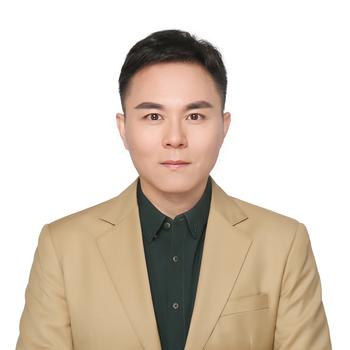Dr. Chao Liu

Fellow in the project "A Translingual Conceptual History of Chinese Worlds" (October 2023)
Short Biography
Chao Liu had a PhD in Comparative Literature from the University of Colorado, is currently a professor at Xueheng Research Institute of Nanjing University. His research interests include modern intellectual and cultural history, with a special focus on national identity and its cultural representation. In recent years, he has published more than 20 papers in famous academic journals at home and abroad, including Literary Studies, Cultura: International Journal of Philosophy of Culture and Axiology, Comparative Literature and Culture, Foreign Literature Review, and Academic Monthly. He has published three monographs in English and Chinese, such as "The Matrix of Modernity and National Identity in Manchukuo Literature from 1937 to 1941" and three translations of "Contemporary Cultural Theory", and hosted one project each for the National Social Science Foundation of China and Jiangsu Province.
Project
Concatenating the World: A Conceptual History of Yingyang in Modern ChinaThis research project mainly focuses on the transmission and domestication of such scientific terms as nutrition and nutriology in the social context of modern China along with corresponding notions of personal health. Unlike other concepts of Western origin that were forcibly transplanted into China by foreign powers, the idea of nutrition was voluntarily imported and creatively reinvented by doctors of traditional Chinese medicine, with Ding Fubao as their most notable representative. Placed within a philosophical system featuring qi and xue, it reconciled traditional cosmology with modern scientific discoveries and lent legitimacy to Chinese medicine by means of experimental research. Therefore, yingyang, the Chinese translation of nutrition or nutrient, has never been replaced by its Japanese counterpart eiyō, a rare linguistic case that manifested the Chineseness of this reoriented concept. In the first part, the discussion centers on how Ding Fubao and his disciples enthusiastically embraced Western nutriology and integrated it in their narratives on Chinese medicine. In the second part, the emergence of the first generation of Chinese nutriologists is investigated, who paid most attention to the nutritional status of nursing mothers, little babies, and school children and suggested them to take in more proteins to enhance their health conditions. The third part explores the institutionalization of yingyang-related affairs at the state level, as the nationalist government formulated a set of guiding principles for Chinese people’s daily intake of essential nutrients, established new administrative departments to regulate the production and processing of food, and officially encouraged scientists to breed high-yielding crops and develop food supplements. The fourth part, in comparison, deals with how the CCP brought yingyang into the ideological context, identifying it with political progressiveness and employing it in their criticism against the imperialists.
